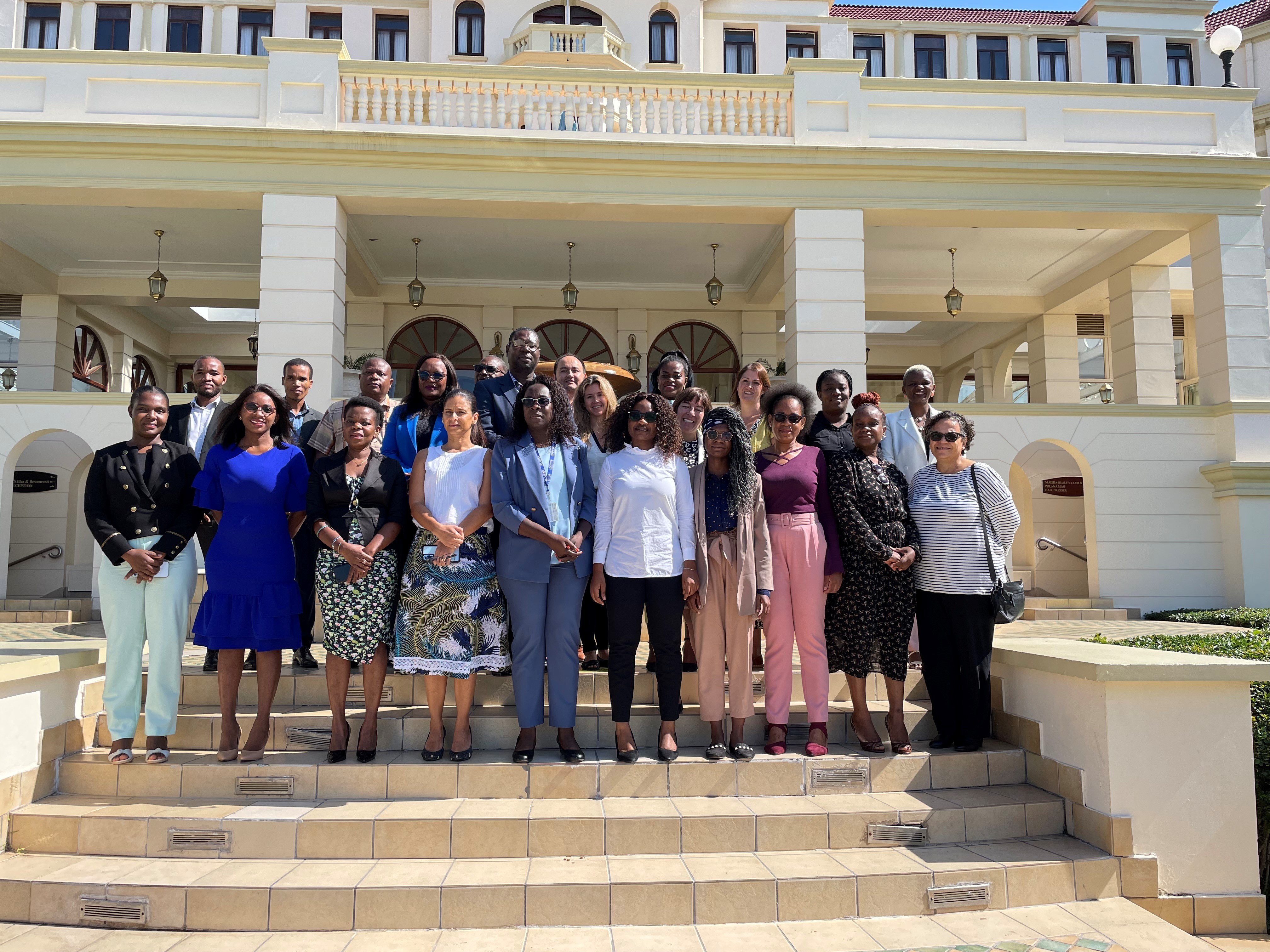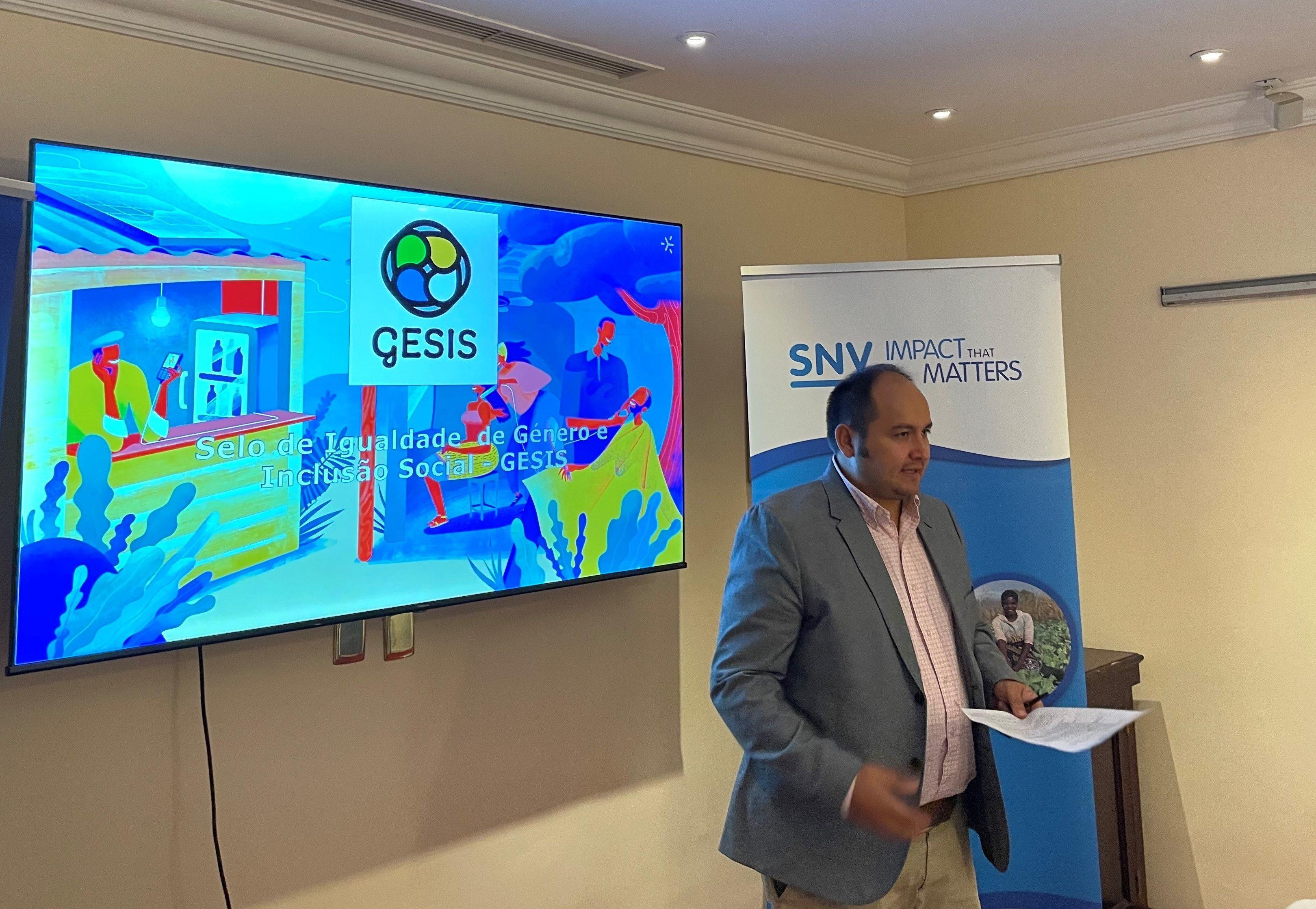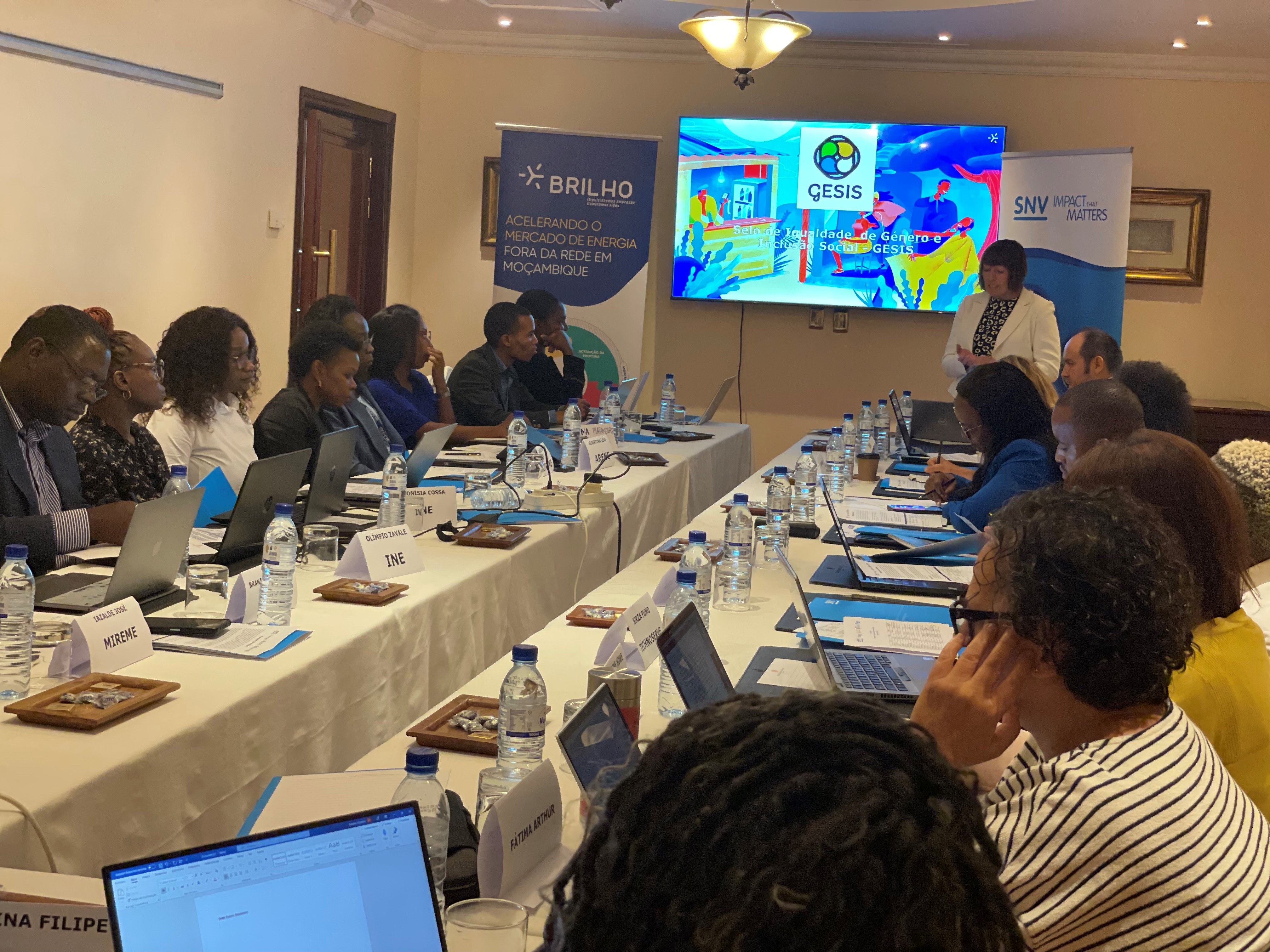Mozambican Government, SNV and CESET build Synergies to operationalize the Gender Equality and Social Inclusion Seal
20.04.2023 //

SNV held a key milestone meeting on April 19th in the city of Maputo under BRILHO programme. The meeting joint together a multi-sector group composed by National Statistics Institute (INE), Ministry of Mineral Resources and Energy (MIREME), Energy Regulatory Authority (ARENE), Electricity of Mozambique (EDM), National Energy Fund (FUNAE), Community Energy Systems and Sustainable Energy Transitions (CESET) and WIN programme, to reflect on different pathways must be used for data collection and reporting under Gender Equality and Social Inclusion Seal (GESIS) indicators framework.
The initiative is part of BRILHO´s programme objectives, which consists in supporting government to create a more inclusive and gender sensitive regulatory framework in the off-grid energy sub-sector to reduce inequalities in access to energy and to the benefits from the energy transition.
During the meeting, the multi-sector group including the Ministries of Health, Agriculture and Gender were focussing in the overview analysis of GESIS indicators framework and on how the reporting system can be strutured ensuring INE and its agencies can collect data, monitor, and report on human development indicators as result of energy operators intervention in both institutional and community levels.
Olimpio Zavale from INE, alluded that institutional coordination is a key for efficient data collection, as INE has access to different sources of information through its units. However, he hehighlighted that GESIS indicators framework must be aligned with the National Statistics System, so that its implementation can contribute to gather more evidences on gender equality and social inclusion standards in the energy sector in Mozambique.
The SNV Energy Sector Leader, Javier Ayala, have mentioned that BRILHO programme has been working in cooperation with ARENE and MIREME to establish an enabling environment for access to energy in off grid areas, and the Gender Equality and Social Inclusion Seal is an innovative initiative aiming to promote gender equality and social inclusion standards in the energy sector in Mozambique, being developed under BRILHO leadership.

Furthermore, Javier Ayala stated that the purpose of the meeting was to assess the effectiveness of the GESIS indicators framework and its alignment with the National Statistics System ensuring the information flow in the monitoring and impacts evaluations processes.
To Vanesa Broto, CESET is implementing a multi-country project in Ethiopia, Malawi and Mozambique in off-grid sub-sector to facilitate the transition to renewable energies, taking into consideration the gender equality and social inclusion standards and the local context.

Following-up actions will be taken to ensure gender equality and social inclusion indicators are reported in the energy sector in Mozambique.
With financial support from UK and Sweden, GESIS is a standard being developing under leadership of BRILHO programme and in partnership with MIREME, ARENE, FUNAE, EDM, CESET and WIN. Its main objectives are stimulate economic growth of energy operators through promotion of gender equality and social inclusion standards and ensuring that social impacts generated in communities, through access to energy, is being reporting in the national statistics.